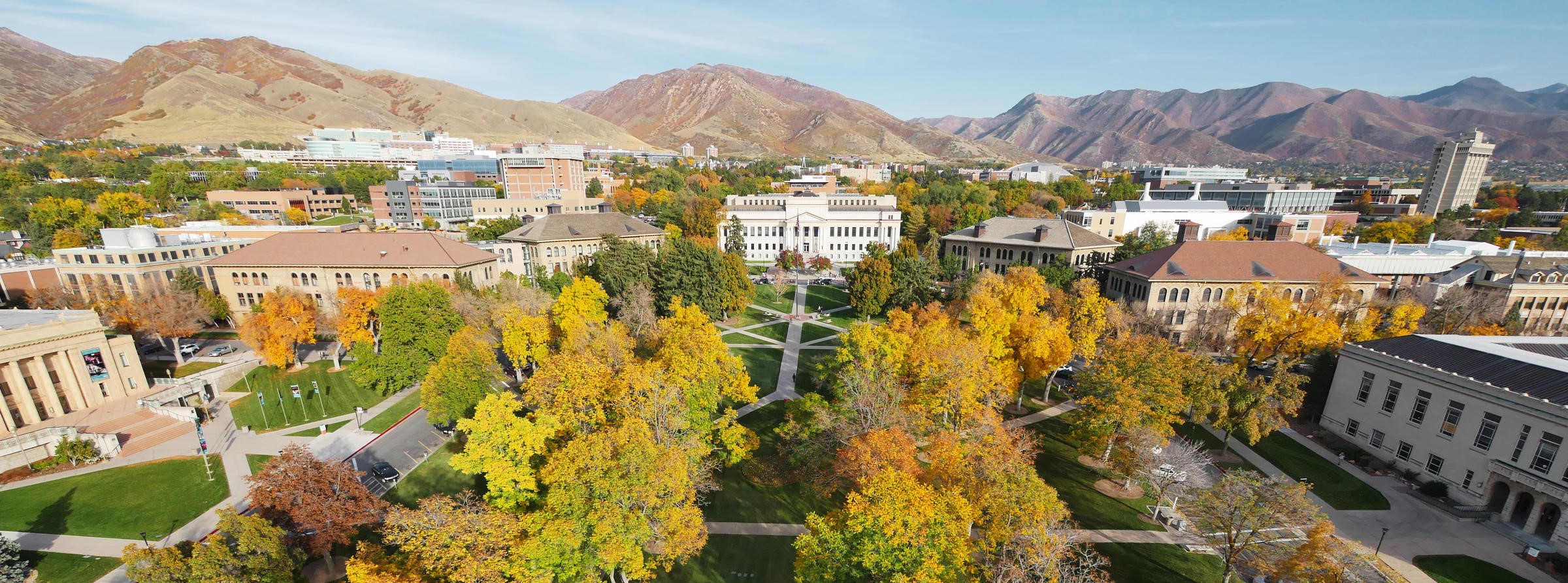Blog Post
Insight: University of Utah casts immense economic and societal footprint in Utah
By: Andrea Brandley and Juliette Tennert
When one considers a university, the initial benefits that come to mind include those resulting from students receiving a college education. These benefits are vast on both an individual and a societal level including increased earnings, increased economic mobility, healthier lifestyles, decreased crime, increased volunteerism, increased voter participation, reduced reliance on public assistance, and reduced poverty rate. However, universities can contribute to a society in many diverse ways.[i]
As Utah’s flagship university, the University of Utah casts an immense economic and societal footprint on the state of Utah. Founded in 1850, the University of Utah extends over 1,500 acres in the foothills of the Wasatch Mountain Range. Located in Salt Lake City, the state’s capital, the U conducts and provides world-class research, education, and clinical care. The combination of a comprehensive research university and an academic medical center creates a rare environment that offers major contributions to the state and beyond.
New reports from the Kem C. Gardner Policy Institute show The University of Utah, including University of Utah Health, directly and indirectly supported
- 83,100 jobs
- $4.6 billion in earnings
- $6.3 billion in GDP
in the Utah economy in 2019, making it one of the largest economic assets in the state. The U’s direct employment of 39,300 jobs makes the U the largest employer in the state.
The expanse of the economic contribution includes the following:
- Outstanding education – The U fulfills a vital role in educating and training a diverse student body of learners. With a 2019 enrollment of 32,994 students, the U trains a significant portion of Utah’s labor force, including two-thirds of Utah physicians. The U offers 100 undergraduate and more than 90 graduate level fields of study. In 2019, the U conferred 8,268 degrees, more than any other public college or university in Utah.
- High-value patient care – U of U Health is the state’s only academic medical center and provides patient care for the people of Utah, Idaho, Wyoming, Montana, and much of Nevada. In 2019, U of U Health tallied approximately two million patient visits with a staff of more than 1,600 physicians.
- World class research – The U’s top tier faculty conducts path-breaking research that leads to new discoveries. In 2019, the U received $547 million in research funding. In addition to improving the human condition broadly, the U’s academic and clinical research creates wealth, income, and jobs in the Utah economy.
- Physical footprint – In addition to the U’s employment contribution, the U also has a vast physical presence. The U owns and manages more than 550 buildings tallying 15.4 million square feet of institutional space. The U’s reach extends to 38 cities and 16 counties in Utah in addition to presence around the U.S. and worldwide.
- Service to the community – As a public university, the U embraces a service mission to make a meaningful societal impact in Utah. This includes making social, economic, and cultural contributions. This social embeddedness is why University President Ruth V. Watkins calls the U the “University for” The U is home to a variety of arts and entertainment venues, offers myriad service opportunities for students and employees, and provides charitable care through U of U Health programs.
The U’s immense economic and societal footprints have far-reaching effects for the students, staff, and community in which it resides. All these impacts lead to improved quality of life for university students, university staff, local communities, and Utah residents.
Andrea Brandley is a graduate assistant at the Kem C. Gardner Policy Institute. Juliette Tennert is the director of economic and public policy research and chief economist at the Kem C. Gardner Policy Institute.
[i] Ma, J., Pender, M., & Welch, M. (2016). Education Pays 2016: The Benefits of Higher Education for Individuals and Society. College Board. Retrieved from https://research.collegeboard.org/pdf/educationpays2016-full-report.pdf.

